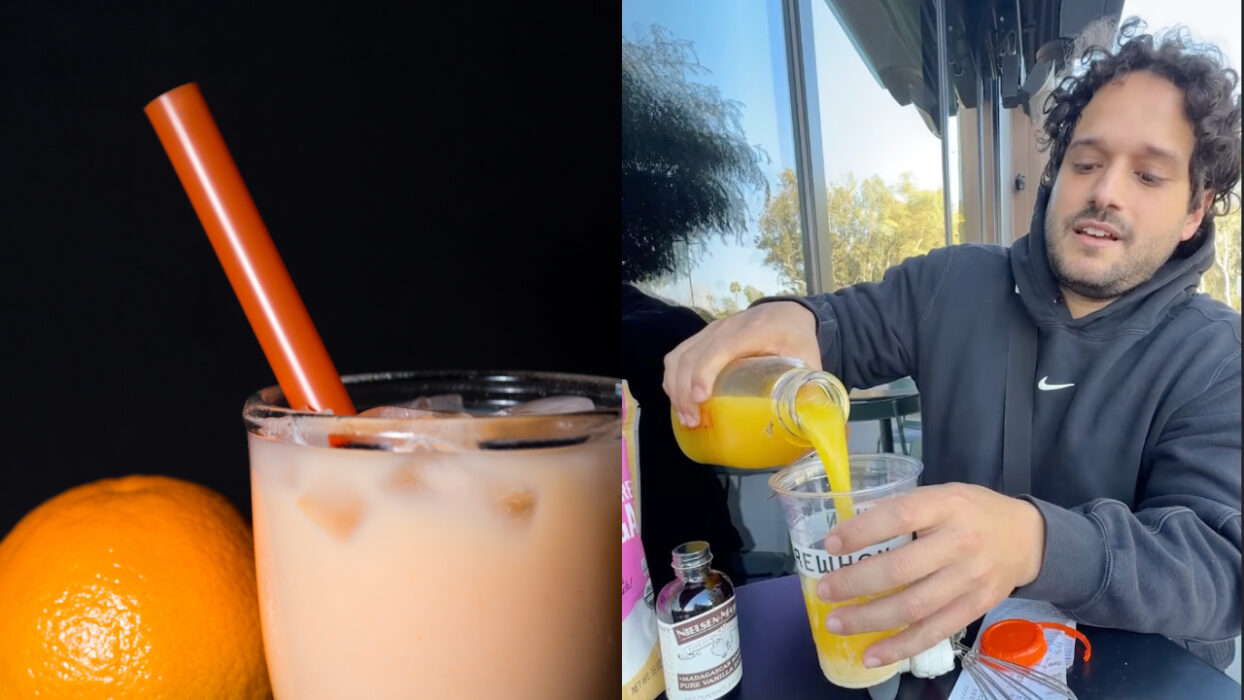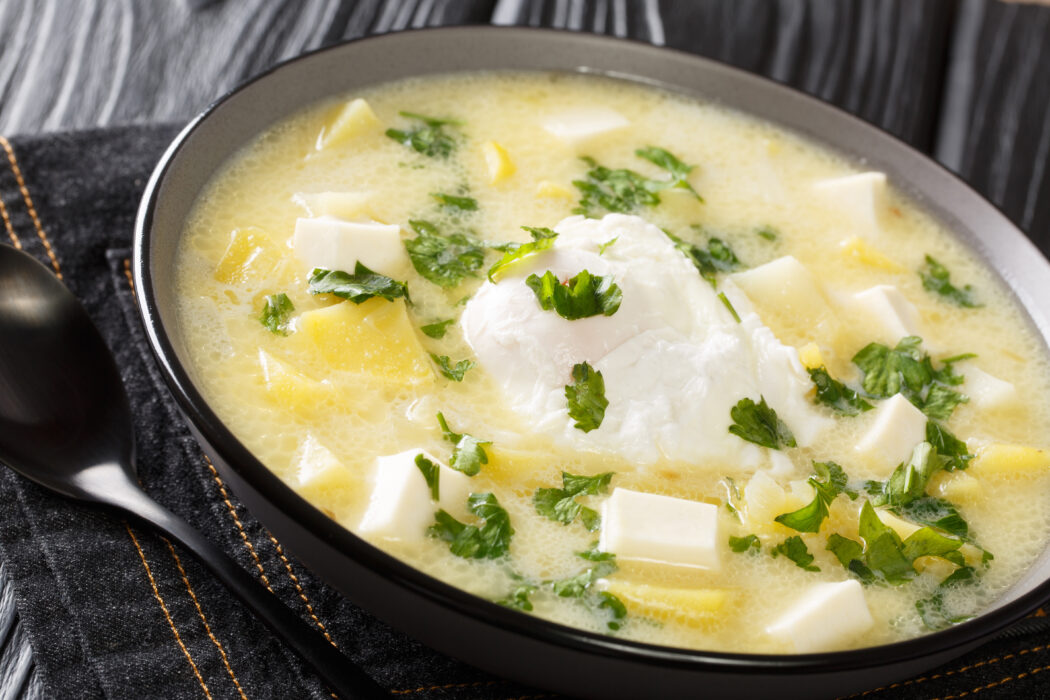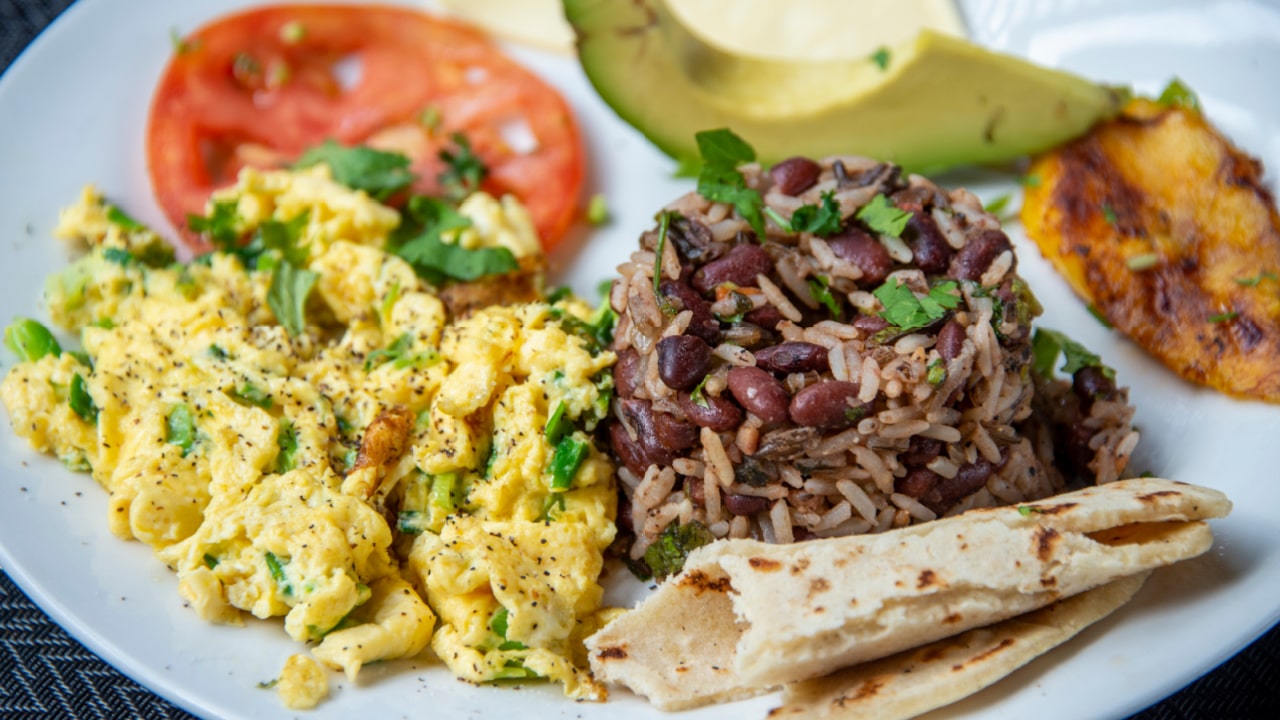
NYC Restaurant Hires Abuelas As Chefs That Make Homecooked Dishes From Their Country
If you’re ever in Staten Island, dining at local restaurant, Enoteca Maria, might “tug at your heartstrings.”
As owner Jody Scaravella explains to mitú, the restaurant offers a unique experience by hiring abuelas from all over the world as rotating chefs every weekend.
Serving as an “outlet for their nurturing energy,” the work allows these abuelas to present their signature dishes to diners.
Enoteca Maria offers these grandmothers the chance to create a three-dish menu (with optional dessert) representing their culture. Their “Nonnas of the World” program brings in real grandmothers from every country, including women from Italy, Peru, Armenia, Argentina and more.
The idea came to Scaravella 16 years ago after finding inspiration from his own Sicilian grandmother, although he had never owned a restaurant. A slew of joys and lessons later, the owner’s concept still rings true.
“These ladies are the source of this information,” he says. “They carry this culture forward to the next generation.”
Enoteca Maria believes in the power of abuela’s home cooking

Staten Island’s Enoteca Maria started by bringing together Italian “nonnas” or grandmothers to the kitchen.
“I grew up in my maternal grandmother’s kitchen, she was from Sicily,” he remembers as he speaks of his muse.
The meals he ate during his childhood accustomed him to delicious Italian food. No restaurant ever “really hit the spot” like his nonna’s cuisine.
Thus, the owner firmly believes in the power of grandmother’s cooking.
“[Any] recipe…It came from somebody’s mother, somebody’s grandmother, and is passed down generationally,” he says. “[Grandmothers] take, you know, those recipes with them, that’s part of their culture.”
Drawing on a universally accepted law — there’s nothing better than abuela’s home cooking — Scaravella decided to open a restaurant that only offered food made by grandmothers. Betting on the nostalgia and emotion simmering in every dish, Enoteca Maria soon became a success.
However, things weren’t always rosy. Initially, the owner remembers bringing in several Italian nonnas to cook in the same kitchen — and things turned chaotic quickly.
“I would have 2, 3, 4 ladies in the kitchen at the same time. And that’s a no-no,” he says.
Adding that competition soon ensued, “Who makes the best lasagna? Who makes the best red sauce?”
Eventually, things got a bit “dicey” when a nonna threateningly “lifted up a frying pan.”
Honestly, it just goes to show how seriously these grandmothers take food. We see it and respect it.
Enoteca Maria soon brought in abuelas from all over the world
Eventually, the concept evolved, becoming “Nonnas of the World” and bringing in grandmothers from every country.
As the owner explained, “New York is, I mean, America in general, is just a meeting place of different cultures… so it’s a perfect spot for this.”

Today, Enoteca Maria is a “platform” for these abuelas to “bring their culture there.”
“They all have three or four or five dishes that they love to make that they do very well and we help them to do it,” he continues.
Puerto Rican abuela Irene (who has 14 grandchildren!) tells mitú: “I love it there! Where else can you feel like a part of a family?”
She continues, “As the diners come in, they can expect a home cooked meal made with the aromas of home and a touch of love. It is this service, care, and love that goes into each one of my dishes.”
There’s a deeply emotional element to Enoteca Maria that starts from the owner’s own experience.
“My grandparents passed away, my parents passed away. And I know I’m not alone in all this,” he shared. “So, it kind of tugs at the heartstrings, when a ‘nonna’ is in the kitchen, and she’s cooking your food, even if she’s not the same culture as you are.”
The restaurant gives women the opportunity to “develop their ideas” and “participate in life”
The restaurant’s buzzing two kitchens have become a source of community for these abuelas, and even though there are “a lot of balls in the air at all times,” Enoteca Maria serves as a jolt of energy for them.
Incredibly enough, as Scaravella says, “A lot of these ladies have never even worked outside their home, they’ve only ever been in their kitchen cooking for their family.”
The restaurant allows them to “develop their ideas,” becoming a “think tank” to plan recipes, source ingredients, and work in an open kitchen for a ravenous audience.
The restaurant is tied to a sense of purpose for these women: “They’re coming in and engaging in life.”
By the end of their shift, which can occur once a year or more regularly, the abuelas undoubtedly feel inspired and fulfilled.
“The people who come there, you know, they’re always taking selfies with [the nonnas],” the owner explains. “And when they leave at the end of the day, everybody’s applauding.”
As Scaravella describes, many of these women are widows or “empty nesters” whose children have grown up and moved away. After years of cooking for a bustling family, they “really don’t have anybody to cook for” anymore. “So this is kind of an outlet for all that nurturing energy that they have.”
The children of these nonnas have told the owner they haven’t seen their mothers so happy in ages. For many, it’s a way for them to “get back into life.”
Peruvian abuela Rosa, who’s famous for her ceviche and lomo saltado, says “I love to cook Peruvian food because my mother taught me… I feel happy that it’s a delight for others, they feel happy and congratulate me, and even take photos with me.”
All about the Latina abuelas who cook at the restaurant
Scaravella shared a bit more about some of the Latina abuelas who cook at Enoteca Maria. One of the such as “Nonna” Rosa from Peru who is “serious about her ingredients” and will not settle for substitutions (we love it).
“She’s not going along with the program until she gets what she wants,” Scaravella says. ” So, I mean, I appreciate that… She’s very true to her recipes.” Her favorite apron, which says “Ceviche,” on the front, highlights her star dish.
Meanwhile, abuela-chef Carmen from Argentina is “full of life, always smiling” and a “ray of sunlight.”
“When she comes into the restaurant, the whole place lights up, and she is just a joy to host the restaurant,” he says.
Her signature dishes? Empanadas, pastel de papa and matambre. She’s big on meat dishes and also makes “amazing” steak and ribs.

Carmen herself says, “When I cook at Enoteca I feel like I am cooking for my family. And when I speak to clients, it’s exciting to know my simple plates are so accepted by everyone.”
She adds, “It’s not a job for me, it’s a pleasure to represent my country.”
The restaurant is looking for more abuelas from around the world to join them
How does Enoteca Maria find the abuelas that rotate shifts at the restaurant? Sometimes through word of mouth, or as recently happened with a new cook joining the team from Nicaragua — they start off as restaurant patrons and become cooks.
“It could be a customer that is sitting in the restaurant,” he says. ” We just start talking and before you know it, they’re in the kitchen cooking.”
Scaravella adds that they’re looking for more grandmothers to join their “Nonnas of the World” program. The abuelas are “paid for their time,” and allowed to plan their own menu for diners. They rotate, and some women only participate once or twice a year.
“They cook the food that they grew up with, that their mothers made for them, that their grandmothers made for them growing up,” Scaravella says. “The people that come to the restaurant absolutely love it.”
For the owner, the concept is about “pulling back that veil of ignorance” to show “we’re all really connected.” He says, “When you’re sitting down, and you’re breaking bread, with somebody from another culture, it really takes you across that border.”
And the grandmothers? In Scaravella’s eyes, they’re “the vessels that carry culture forward” and he’s happy to be a part of it.
Anyone interested in joining the team can email them at nonnasoftheworld@gmail.com or call them at 718-447-2777.




